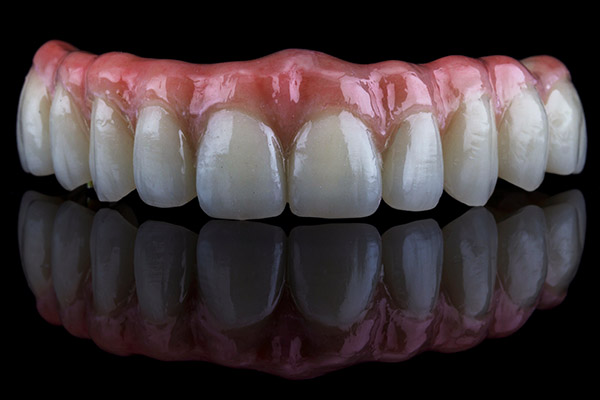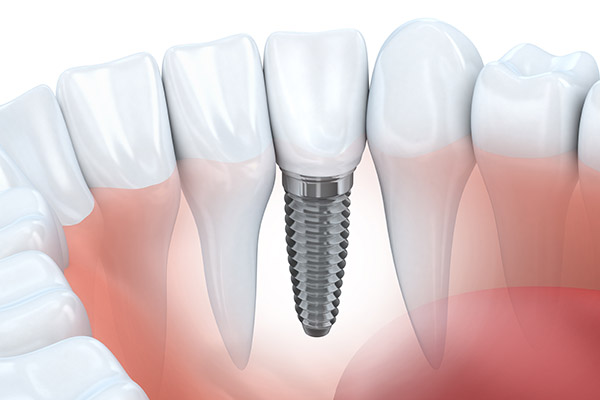 Dentures can restore confidence in one’s smile and quality of life for those who have suffered tooth loss. However, it may not happen overnight, and getting used to dentures will take some time. Still, many denture wearers find the benefits of dentures are worth the wait. Though it may take some time to acclimate to life with dentures, once you do, before you know it, you will be back to smiling and laughing and enjoying the foods you love.
Dentures can restore confidence in one’s smile and quality of life for those who have suffered tooth loss. However, it may not happen overnight, and getting used to dentures will take some time. Still, many denture wearers find the benefits of dentures are worth the wait. Though it may take some time to acclimate to life with dentures, once you do, before you know it, you will be back to smiling and laughing and enjoying the foods you love.
As with most life changes, knowing what to expect goes a long way in helping ease the adjustment process. This article takes a closer look at the denture adjustment process by examining frequently asked questions about getting used to dentures.
How long does it take to get used to new dentures?
For first-time denture wearers, it typically takes about a month to adjust. These are not natural teeth, so getting used to speaking and eating with them will take some time. While this may seem like a long time, knowing what to expect during this month will help ease the transition.
What can I eat while adjusting to dentures?
It is important to stick with mostly a soft food diet at first. Start with blended, ground, or mashed food that only requires a little chewing. Common suggestions include soft-boiled or scrambled eggs, yogurt, mashed potatoes, tuna salad, soft-cooked veggies, bananas, ripe avocados, and applesauce. Be careful with food temperature because dentures can make it difficult to gauge temperature with your lips. Spicy foods are not recommended and may aggravate mouth irritation spots.
How can I handle discomfort while adjusting to new dentures?
There will be some discomfort to deal with while adjusting to new dentures. Some of this discomfort is just part of the adjustment process, and some can be resolved by a dentist making adjustments. Exercising caution while eating and keeping dentures clean will help prevent discomfort. Patients may consider using a denture adhesive to help stabilize the denture and keep food from getting between the denture and the gum. In addition, topicals are designed to relieve sore spots caused by dentures. A denture adjustment may be necessary if pain and soreness persist after a month.
How do I care for my dentures?
We suggest brushing dentures once or twice daily with a soft-bristled toothbrush, water, mild soap, or a dentures-specific cleaning solution. Dentures need removal for cleaning. Therefore, we recommend placing a towel on the countertop before cleaning them to soften the fall if the patient drops them. Soak dentures overnight in a denture-soaking solution. Do not use hot water, as this may warp dentures. Before putting the dentures back in in the morning, one should rinse them with water.
How can I keep my dentures from slipping?
This is one of the biggest challenges, especially for new denture wearers, and there is no easy fix-all solution. However, following the advice above for eating and denture care will help. In addition, denture adhesive can go a long way in helping to stabilize dentures. Patients should contact their dentist if they feel the slipping problem may be due to their dentures needing adjustment.
Are dentures the right choice for restoring your smile?
We hope this information has been helpful in letting you know what to expect as a first-time denture wearer. Dentures can be an effective way to restore oral function and appearance after tooth loss. If you want to learn more about dentures and find out if they are the right choice for you, our team is happy to help.
Request an appointment or call Pampered Smiles at 404-891-9489 for an appointment in our Atlanta office.
Recent Posts
Those missing one or more teeth with healthy natural teeth can benefit from partial dentures. Not only do partial dentures help people chew food correctly, but they also restore the appearance of a smile. Choosing partial dentures allows a patient to regain comfort and confidence without complicated procedures.Partial dentures are removable oral appliances that fill…
Dentures are a great solution for people who have lost some or all of their teeth. They can restore one's ability to eat and speak properly and improve the overall appearance of your smile. However, you may have questions about the denture process, from the initial consultation to the final fitting. This blog article will…
Implant-supported dentures are ideal for many dental professionals and their patients. They offer many benefits over their alternatives, including a natural look and results lasting around 15 years or more. If you are considering restoring your smile with implant-supported dentures, we have outlined a few things to know before your appointment.Implant-supported dentures are not ideal…


